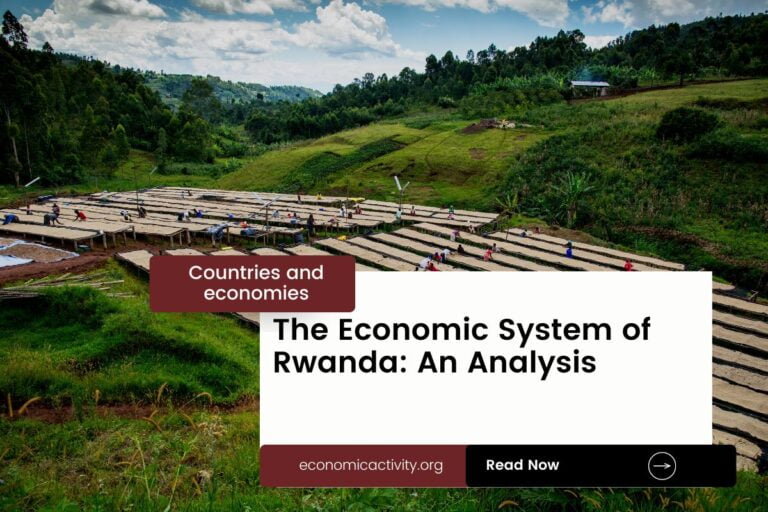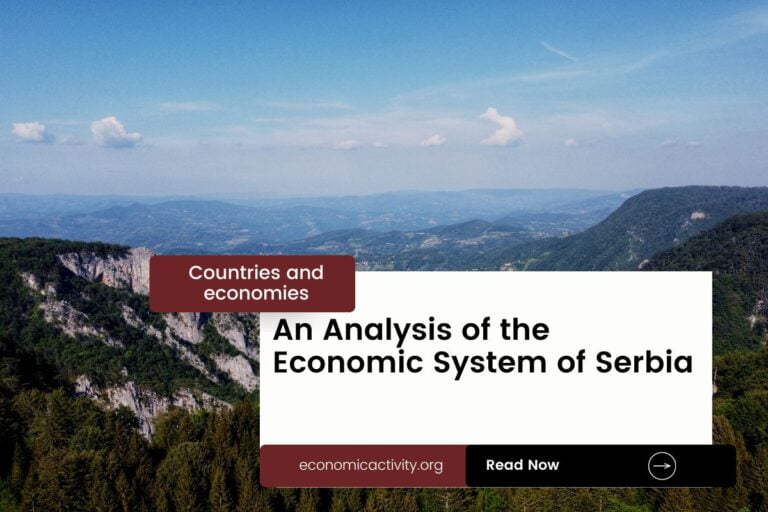Turkey, with a population of 84,979,913, is ranked 17th globally, just behind Iran, Islamic Republic. Located in the Middle East, it covers a total area of 785,350 square kilometers, ranking 35th worldwide, just below Pakistan.
Turkey, with a GDP of $907.12 billion in 2022, holds the 19th rank globally. It follows the Netherlands, which has a GDP of $1.01 trillion. In terms of GDP per capita, Turkey stands at $10,674.50, ranking 74th worldwide.
It is behind Cuba, with a GDP per capita of $11,255. Turkey’s economic position reflects its significant contributions to various industries and its growing presence in the global market, positioning it as a key player in the region.
What are the economic activities of Turkey (Turkiye)?
- Primary activities: 6.8% of GDP.
- Secondary activities: 32.3% of GDP.
- Tertiary activities: 60.7% of GDP.

Primary Sector of Turkey (Turkiye)
Turkey’s primary sector, particularly its agricultural activities, thrives due to its diverse climate and abundant natural resources. With 49.49% of the land dedicated to agriculture, the country produces a variety of crops and animal products. The main agricultural products include milk, wheat, sugar beets, tomatoes, barley, maize, potatoes, apples, grapes, and watermelons.
Despite contributing only 6.8% to the GDP, agriculture plays a crucial role in providing employment and sustaining rural livelihoods. The wide range of agricultural products highlights the sector’s significance in ensuring food security and promoting economic stability in Turkey.
With its diverse geological landscape, the primary sector thrives in Turkey. Abundant in resources like coal, iron ore, and copper, it fuels the economy. Other key resources include gold, marble, and hydropower, supporting various industries and agriculture. The country’s rich natural endowments drive growth and development in the primary sector.
Secondary Sector of Turkey (Turkiye)
What is the secondary sector or what are secondary activities?
The secondary sector involves industries that transform raw materials into finished products. In Turkey, industrial products include textiles, food processing, automobiles, electronics, coal, chromate, copper, boron, steel, petroleum, construction materials, lumber, and paper.
Manufactures play a crucial role in Turkey’s total exports, accounting for 73.25% in 2023. They drive economic growth, create jobs, and contribute significantly to the country’s trade balance.
Tertiary sector of Turkey (Turkiye)
What is the tertiary sector or what are tertiary activities?
The tertiary sector, also known as the service sector, encompasses intangible goods like advice and expertise. In Turkey, key tertiary activities include restaurants, healthcare, education, banking, communication, tourism, and transportation. These services play a vital role in the country’s economy, catering to both consumer and business needs.
Of particular importance, Turkey’s tourism industry is a vital economic pillar, contributing significantly to its GDP and employment. With 51.7 million annual arrivals, accounting for 60.89% of its population, the country’s allure is undeniable. Istanbul, with its rich history and vibrant culture, and Antalya, renowned for its breathtaking beaches and resorts, stand out as top destinations.
Another example of tertiary economic activity is the mobile cellular sector, with approximately 90 million subscriptions, exceeding the population. This connectivity fosters technological growth, enhancing innovation and digital services.
Military Activities and Economic Sectors of Turkey (Turkiye)
The military is a great example of how different economic activities work together. In Turkey, the primary sector helps by providing resources needed for military use. The secondary sector is important too, as it manufactures weapons and equipment. The tertiary sector includes services like logistics and training. The quaternary sector focuses on research and development, while the quinary sector involves high-level decision-making and strategy planning.
In 2023, Turkey’s military expenditure was about 15.8 billion US dollars, which is 1.23% of its GDP. The country has an active military force of 355,200 personnel. This means there are about 10.7 active military members for every 1,000 people in Turkey.
Biggest company in Turkey (Turkiye)
Which is the biggest company in Turkey? The largest company is Société de Fabrication des Boissons de Tunisie, with a market value of 1.08 billion USD. It operates in the Food and Beverage industry, part of the Secondary economic sector, and was founded in 1961.
International Trade of Turkey (Turkiye)
Import Activities of Turkey (Turkiye)
-gold-refined-petroleum-plastics-scrap-iron-cars.webp)
Turkey’s import activities are crucial, accounting for 42.58% of its GDP, totaling 3.6177 trillion USD in 2023.
Turkey’s key import partners are China, Germany, Russia, the US, and Italy. The country primarily imports gold, refined petroleum, plastics, scrap iron, and cars. These imports play a crucial role in driving Turkey’s economy and meeting the demands of its industries.
Exports Activities of Turkey (Turkiye)
-garments-refined-petroleum-cars-jewelry-plastic-products.webp)
Turkey’s export activities in 2023 totaled $2.5578 trillion, constituting 38.58% of its GDP. This high percentage underscores the crucial role exports play in Turkey’s economy.
Turkey’s export activities are diverse, with top partners like Germany, the US, Iraq, the UK, and Italy. Key export commodities include garments, refined petroleum, cars, jewelry, and plastic products.
Turkey (Turkiye) economy challenges in 2024
In 2024, Turkey faces challenges of stabilizing its economy after inflation and currency depreciation. The reversal of expansionary policies is underway, aiming to address these issues. The country’s industrialization and agricultural base provide a foundation for recovery.





Leave a Reply